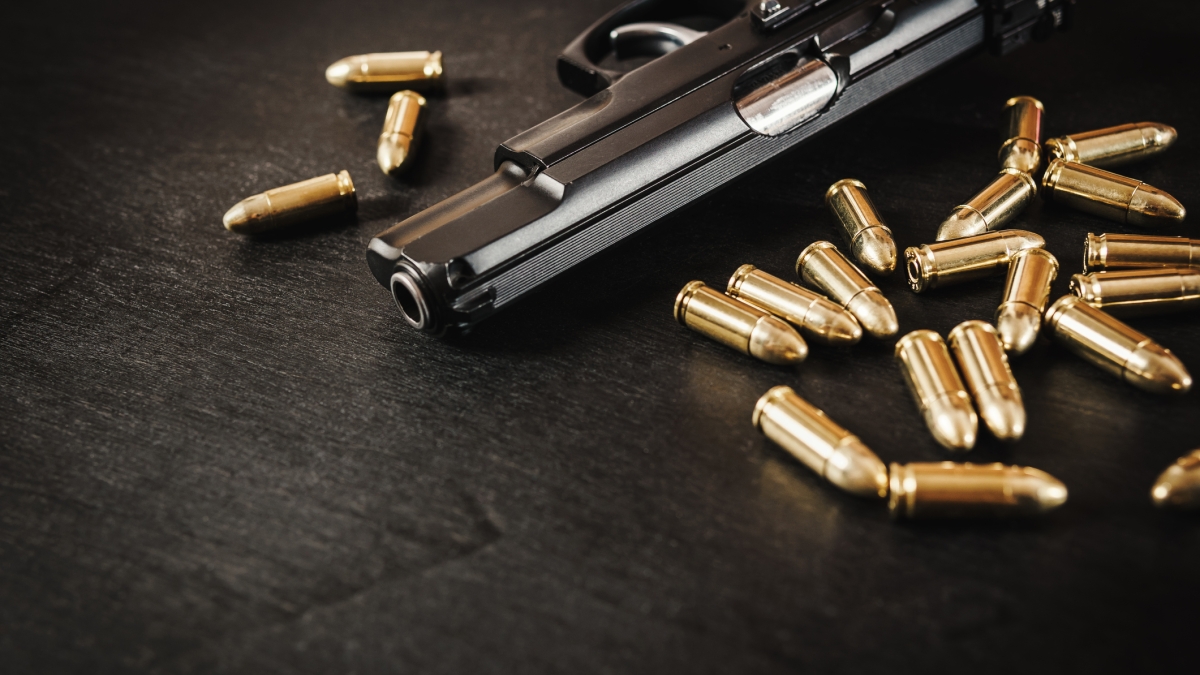The effect of emotions in public service announcements about gun violence

Columbine. Sandy Hook. Orlando. Las Vegas. All tragedies involving gun violence that resulted in multiple civilian fatalities and injuries.
Research has shown that these mass shootings are occurring more frequently, especially in the last decade.
Despite intense media scrutiny and condemnation from politicians and the public, nothing seems to change.
Four Arizona State University researchers recently conducted a study to look at the emotional impact of public service announcements about gun violence to see how it may influence people or catalyze them to act.
ASU News spoke to Foundation Professor of political science Kim Fridkin in the School of Politics and Global Studies about the study, which she co-authored with Patrick Kenney, dean of The College of Liberal Arts and Sciences; Manuel Gutiérrez, a political science PhD student; and Ryan Deutsch, a Juris Doctor student at the Sandra Day O’Connor College of Law.
Kim Fridkin
Question: Your study on gun violence is interesting in that goes a different route by asking respondents to look at the emotional impact of gun violence and how public service announcements (PSAs) might spur them to take action. Why did you want to study that aspect of this issue?
Answer: In earlier research, I — with my co-author, Dean Patrick Kenney — have been interested in how people’s emotional reactions to negative political advertisements influence their political learning and political engagement. As I learned more about how emotions influence people’s attitudes, I — with my co-authors — became interested in examining emotional reactions to other types of messages. Given a long-standing interest in gun control issues, as well as the interest of some of my students working in the School of Politics and Global Studies Laboratory, we decided to look at how public service announcements about gun violence influence people’s learning as well as their attitudes about gun violence and gun control measures. Political psychologists know how the substance of messages influence attitudes, but we know less about how emotional reactions to PSAs influence people’s attitudes. In SPGS lab, we are fortunate to have software which measures people’s emotional reactions as they are exposed to a stimuli, so in our research, we can compare the software measure of people’s emotional reactions with people’s self-report of their emotional reaction to get a better sense of how emotions influence people’s learning, attitudes and engagement.
Q: Specifically, the study focused on four negative emotions of gun violence: fear, sadness, anger and contempt. How did these emotional reactions influence people’s views about gun-related topics?
A: We found that people’s emotional reactions — either measured by self-report, e.g., a respondent saying the PSA made them feel very sad, or by software measures analyzing facial expressions, e.g., different a set of facial muscles are associated with different displayed emotions, such as the nose wrinkle being associated with disgust — were related to what people learned as well as people’s willingness to learn or acquire additional information about preventing gun violence. For example, we found that people who said they felt more contempt and sadness after watching the school violence PSAs were more likely to want additional information about how to prevent gun violence. We also found that people who reported feeling more fear and expressed more contempt, via facial expressions, became significantly more negative towards the National Rifle Association between the start and the end of the study. We also found that some negative emotional reactions lead people to become more politically engaged. In particular, people who expressed more contempt in their facial expressions and self-reported feeling more contempt after watching the school violence PSAs were more likely to become politically engaged.
Q: There was also a policy aspect of your study, which asked respondents to review current policy and their reactions. What was the most helpful thing you discovered regarding this part of the study?
A: We looked at whether people changed their views about a series of gun-related policies, and we found that people’s emotional reactions to the PSAs produced significant changes in their views on banning assault weapons, requiring gun background checks and banning high-capacity clips. For example, we found that people who reported being more angry and people who displayed more anger and contempt via their facial expressions became significantly more likely to favor background checks for gun purchases from the start to the end of the study. For each of the three policies examined, we found that people’s emotional reactions to the school violence PSA led to significant changes in their policy views.
Q: Concluding thoughts on your study?
A: I think the study shows that people’s emotional reactions to public service announcements can lead to changes in policy attitudes and political engagement. I think these results can be used to create more effective public service announcements – beyond gun violence. So, for instance, the federal and state governments are interested in creating PSAs to reduce COVID-19 vaccine hesitancy. These results suggest that certain emotions may be more influential in changing behavior (getting a COVID-19 vaccine) – such as fear and contempt. So, designing PSAs with these emotions in mind may lead to more effective PSAs.
Top photo courtesy of iStock/Getty Images
More Law, journalism and politics

TechTainment conference explores the crossroads of law, technology, entertainment
What protections do writers, actors, producers and others have from AI? Will changing laws around name, image and likeness (NIL) eliminate less lucrative college sports?And what does the No…

How to watch an election
Every election night, adrenaline pumps through newsrooms across the country as journalists take the pulse of democracy. We gathered three veteran reporters — each of them faculty at the Walter…
Law experts, students gather to celebrate ASU Indian Legal Program
Although she's achieved much in Washington, D.C., Mikaela Bledsoe Downes’ education is bringing her closer to her intended destination — returning home to the Winnebago tribe in Nebraska with her…
